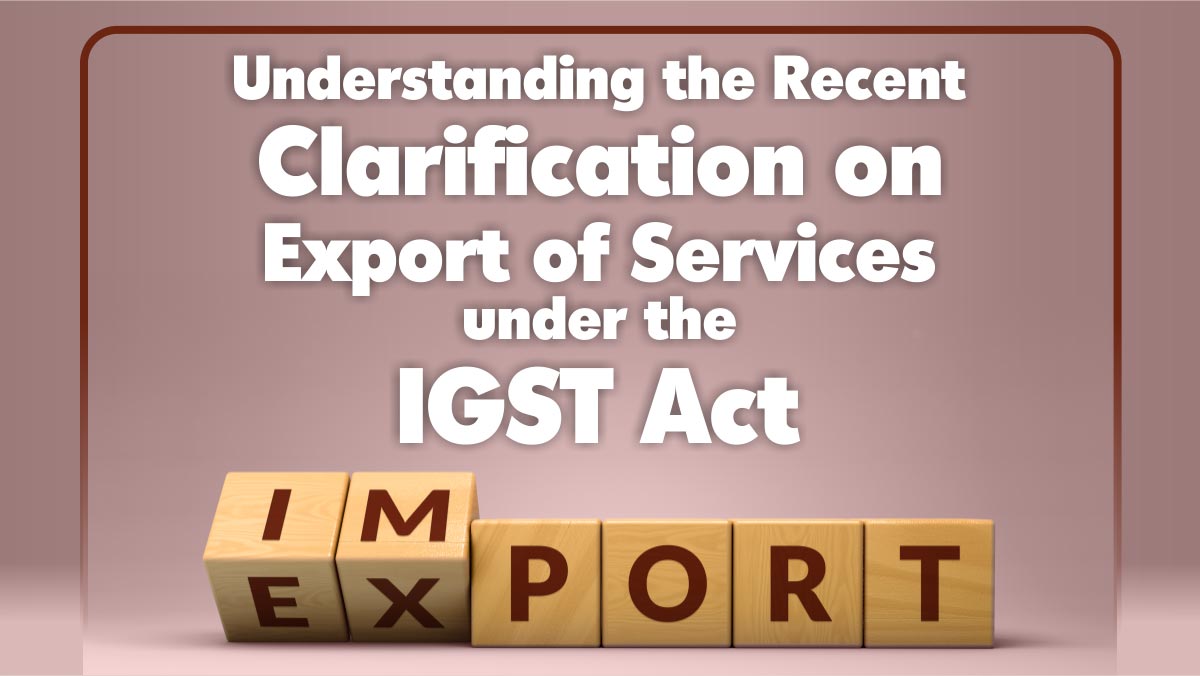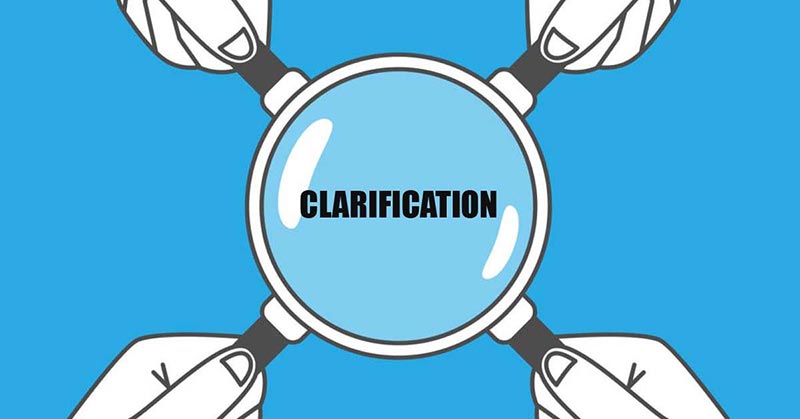
In the world of international trade and commerce, regulations and definitions play a pivotal role in determining how businesses operate. Recently, the Central Board of Indirect Taxes and Customs has provided an important clarification related to the export of services, specifically focusing on sub-clause (iv) of Section 2(6) of the Integrated Goods & Services Tax Act, 2017. This clarification addresses the admissibility of export remittances received in a Special INR Vostro account, as permitted by the Reserve Bank of India, for the purpose of considering a supply of services as an export in the realm of indirect taxation. Let’s dive into the details.
The Five Conditions of Export of Services
To qualify as an export of services under the IGST Act, a supply of services must meet five specific conditions. These conditions are outlined in clause (6) of Section 2 of the IGST Act:
(6) “export of services” means the supply of any service when, –
(i) the supplier of service is located in India;
(ii) the recipient of service is located outside India;
(iii) the place of supply of service is outside India;
(iv) the payment for such service has been received by the supplier of service in convertible foreign exchange or in Indian rupees wherever permitted by the Reserve Bank of India; and
(v) the supplier of service and the recipient of service are not merely establishments of a distinct person in accordance with Explanation 1 in section 8;”
The focus of the circular has been on sub-clause (iv). In essence, this condition requires that the payment for a service should be received by the supplier in either convertible foreign exchange or in Indian rupees as permitted by the RBI.

The RBI’s Role in Export Remittances
To provide context, we refer to RBI’s A.P. (DIR Series) Circular No.10 dated 11th July 2022. This circular emphasises the promotion of global trade with a focus on exports from India and supports the growing interest of the global trading community in Indian Rupees (INR). It has been decided to create a mechanism for invoicing, payment, and settlement of exports and imports in INR. This mechanism involves Special Rupee Vostro Accounts. Here’s a snippet from the circular:
“Indian importers undertaking imports through this mechanism shall make payment in INR, which shall be credited into the Special Vostro account of the correspondent bank of the partner country, against the invoices for the supply of goods or services from the overseas seller/supplier.”
“Indian exporters, undertaking exports of goods and services through this mechanism, shall be paid the export proceeds in INR from the balances in the designated Special Vostro account of the correspondent bank of the partner country.”

How the Clarification Aligns with RBI’s Circular
Upon careful examination of the RBI’s circular and the IGST Act, it becomes clear that when Indian exporters engaged in the export of services are paid in INR from the Special Rupee Vostro Accounts of correspondent banks, it satisfies the conditions specified in sub-clause (iv) of Section 2(6) of the IGST Act. This alignment is subject to the conditions and restrictions detailed in the Foreign Trade Policy, 2023, and existing RBI Circulars, and it doesn’t affect any other permissions or approvals required by law.
Final Thoughts
This clarification serves to ensure consistency in the application of the law across various field formations. It provides valuable insights into how export remittances received in Special INR Vostro accounts are to be treated under the IGST Act. It also underscores the importance of staying updated with the latest circulars and notifications to navigate the complex world of international trade with confidence and compliance.
